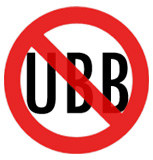 Canada’s House of Commons Standing Committee on Industry Science and Technology has taken an in-depth look at Internet Overcharging in an ongoing series of hearings to explore Bell’s petition to charge usage-based billing. The request, earlier approved by the Canadian Radio-television and Telecommunications Commission (CRTC), would end flat rate, unlimited usage plans across the country, and mandate Bell’s proscribed usage cap regime on every ISP in Canada.
Canada’s House of Commons Standing Committee on Industry Science and Technology has taken an in-depth look at Internet Overcharging in an ongoing series of hearings to explore Bell’s petition to charge usage-based billing. The request, earlier approved by the Canadian Radio-television and Telecommunications Commission (CRTC), would end flat rate, unlimited usage plans across the country, and mandate Bell’s proscribed usage cap regime on every ISP in Canada.
Remarkably, even Canada’s Conservative Party, which laid the deregulatory framework that allowed Canada’s barely-competitive market to stick it to consumers and small businesses, refuses to defend the overcharging schemes.
So far, the three hearings deliver everything Stop the Cap! has warned about since we began this fight in the summer of 2008:
- Proof that usage caps, and consumption-based billing have nothing to do with cost recovery or fairness. They are, at their root, economically engineered to discourage use of the Internet and protect revenue from the provider’s other businesses, especially video.
- There is no evidence of a data tsunami, exaflood, or whatever other term providers and their financially-connected allies in the equipment business cook up to warn about an explosion of data usage mandating control measures. Data usage is increasing at a slower rate than the development of new equipment and fiber pipelines to manage it.
- Nobody ever saves a thing with Internet Overcharging schemes. While Bell and other providers make up scary stories about “heavy users” picking “innocent” users’ pockets, it’s the providers themselves making all the money. In fact, bytes of data have no intrinsic value. The pipelines that deliver data at varying speeds do, which is why providers are well-compensated for use of them. Levying additional charges for data consumption is nothing more than extra profit — a broadband usage tax. Providers make plenty selling users increasingly profitable connections based on speed. They do not need to be paid twice.
- For all the talk about the need to invest in network expansion, Bell has reduced infrastructure spending on its core broadband networks the last three years’ running. They are spending more on deploying Internet Protocol TV (IPTV), a service the company swears has nothing to do with the Internet or their broadband service (despite the fact it travels down the exact same pipeline).
- Caps and usage billing never bring about innovation, except from providers looking for new ways to charge their customers more for less service.
 I strongly encourage readers to spend an evening watching and listening to these hearings. At least download the audio and let Canada’s broadband story penetrate. You will laugh, cringe, and sometimes want to throw things at your multimedia player.
I strongly encourage readers to spend an evening watching and listening to these hearings. At least download the audio and let Canada’s broadband story penetrate. You will laugh, cringe, and sometimes want to throw things at your multimedia player.
In the end, the hearings illustrate the points we’ve raised here repeatedly over the past three years, and it only strengthens our resolve to battle these Internet pricing ripoffs wherever they appear. If you are a Canadian citizen,write your MP and demand an end to “usage-based billing” and make it clear this issue is paramount for your vote at the next election. Don’t debate the numbers or waste time “compromising” on how much you want to be ripped off. There is no middle ground for usage-based pricing. It should be rejected at every turn, everywhere, with no compromises. After all, aren’t you paying enough for your Internet connection already?
The Standing Committee on Industry, Science and Technology
Meeting # 54 – Usage-based Billing Practices
February 3, 2011
This video is encoded in the Windows Media format which presents some technical challenges. Full screen or 200% zoom-viewing mode is recommended.
[For Windows users, right click the video and select ‘Zoom->Full Screen’ or ‘Zoom->200%’.]
This hearing was televised and had the most media attention. Testimony from the CRTC was decidedly defensive, and almost entirely in support of usage-based billing and Bell’s petition. The Commission found no friends in this hearing.
Appearing from the Canadian Radio-television and Telecommunications Commission: Konrad W. von Finckenstein, Chairman; Len Katz, Vice-Chairman, Telecommunications; Lynne Fancy, Acting Executive Director, Telecommunications. (1 hour, 29 minutes)
If you want to take the hearing audio along for a ride, you can download the MP3 version.
The Standing Committee on Industry, Science and Technology
Meeting # 55 – Usage-based Billing Practices
February 8, 2011
The second in a series of hearings exploring Usage-based billing included witnesses from independent Internet Service Providers who could face extinction if they are forced to pay higher prices for wholesale broadband access.
Appearing: Rocky Gaudrault, CEO of TekSavvy Solutions Inc., Matt Stein, vice-president of network services for Primus Telecommunications Canada, and Jean-François Mezei, a Montreal-based telecommunications consultant who most recently petitioned the CRTC to repeal its decision. (120 minutes)
You must remain on this page to hear the clip, or you can download the clip and listen later.
The Standing Committee on Industry, Science and Technology
Meeting # 56 – Usage-based Billing Practices
February 10, 2011
The third in a series of hearings exploring Usage-based billing included witnesses from Bell Canada, which originally proposed the idea, and additional testimony from independent Internet Service Providers and their trade association, and consumer advocates who oppose the pricing scheme.
Appearing: OpenMedia.ca: Steve Anderson, Founder and National Coordinator. Bell Canada: Jonathan Daniels, Vice-President, Law and Regulatory Affairs; Mirko Bibic, Senior Vice-President, Regulatory and Government Affairs. Shaw Communications Inc.: Jean Brazeau, Senior Vice-President, Regulatory Affairs; Ken Stein, Senior Vice-President, Corporate and Regulatory Affairs. Canadian Association of Internet Providers: Monica Song, Counsel, Fraser Milner Casgrain LLP. MTS Allstream Inc.: Teresa Griffin-Muir, Vice-President, Regulatory Affairs. Union des consommateurs: Anthony Hémond, Lawyer, Analyst, policy and regulations in telecommunications, broadcasting, information highway and privacy. Canadian Network Operators Consortium Inc.: Bill Sandiford, President; Christian S. Tacit, Barrister and Solicitor, Counsel. (128 minutes)
You must remain on this page to hear the clip, or you can download the clip and listen later.


 Subscribe
Subscribe








